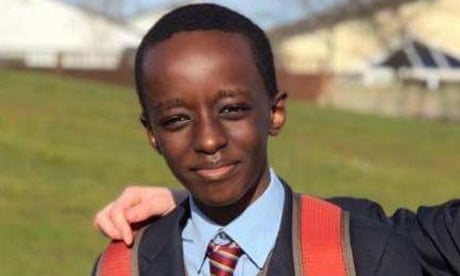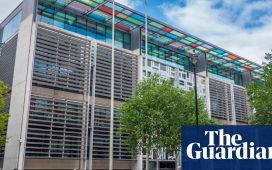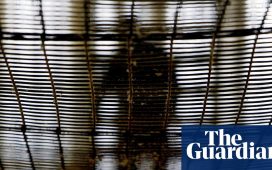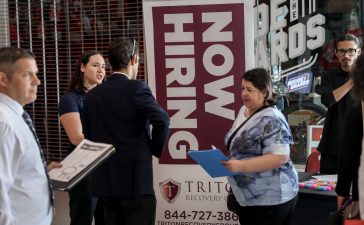
When Axel Rudakubana returned to school after the summer holidays five years ago, something had changed. He had turned 13 weeks earlier but this was not the usual difficult transition to teenage life.
“In year 7 and year 8 he was fairly unassuming. Nothing that would be red flags,” said a source close to Range high school in the seaside town of Formby, Merseyside. “What happened that summer is the question.”
Within a month of the new term, he complained of being racially bullied. Fellow pupils said he started “acting up” in class, remonstrating with teachers and sometimes storming out. “Doing an Axel,” as it became known.
In October 2019, the 13-year-old made an anonymous phone call to the NSPCC’s Childline, admitting to having murderous thoughts about the bully. He said he had taken a kitchen knife to school on 10 occasions and asked: “What should I do if I want to kill somebody?”
The disturbing call was, his barrister Stan Reiz KC said, a “plea for help”. It triggered a chain of events that would culminate nearly five years later in one of the most shocking atrocities in recent UK history.
It is a story that can be told in full for the first time after Rudakubana, now 18, was sentenced on Thursday to a minimum of 52 years in prison, the longest for anyone his age.
Within days of his call to Childline, Rudakubana was permanently expelled from Range high school and mainstream education altogether.
Records show he never settled in any other school, bouncing from a pupil referral unit to two specialist providers, his obsession with violence growing all the time.
In his admission interview at Acorns pupil referral unit in Ormskirk, Lancashire, on 17 October 2019, he was asked why he had taken a knife to his former school. He replied: “To use it.”
It was an example of the almost childlike honesty with which he spoke to professionals, including the police, who had become involved 10 days earlier when he admitted taking knives into school.
The 13-year-old, who lived with his parents and older brother in the quiet Lancashire village of Banks, was referred by the police to a local safeguarding board, which began the process of offering behavioural and emotional wellbeing support.
Two months later, just before pupils broke up for Christmas, he returned to Range high school armed with a hockey stick and attacked another pupil, breaking their wrist. He had to be restrained by staff. The headteacher said Rudakubana had “no sense of the wrongness” of his actions.
Police later found a knife in his backpack and arrested him on suspicion of assault and carrying a bladed article. He pleaded guilty, earning a criminal record at 13, and undertook a rehabilitative programme centred on knife crime and offending behaviour, which he completed in 2021.
Classmates had known for months about Rudakubana’s fascination with gruesome videos online. Now, it had come to the attention of professionals.
During an IT class at the Acorn, he made alarming comments about mass shootings. A teacher looked over his shoulder to see a webpage about a bloodbath at a US high school and reported it to Prevent, the government’s anti-radicalisation programme.
He was interviewed by counter-terrorism officers but he was not escalated as a concern because he had no firm ideology.
As the Covid-19 pandemic forced the country into lockdown in March 2020, Rudakubana sank deeper into the shadows.
He had come under the care of Alder Hey children’s hospital’s mental health services, which said his anxiety was preventing him from leaving home. Neighbours barely saw him, describing him as a virtual recluse.
Spending days at home online, he downloaded a version of an al-Qaida training manual three times in 2021, later using it to make the deadly poison ricin in his bedroom.
In February 2021, a former pupil reported Rudakubana to Prevent because of posts he had shared on Instagram about the late Libyan dictator Muammar Gaddafi. This time he was not seen in person by counter-terrorism officers and his case was closed.
Two months later he was on Prevent’s radar for a third time when a teacher at the Acorn noticed he was researching the 2017 London Bridge attack. Again, he was not visited in person and there was no further action.
In the six months from November 2021, officers from the Lancashire constabulary were called to Rudakubana’s home four times as his behaviour grew more erratic.
On one occasion, after his mother had reported him missing, he was found by police on a bus with a knife, refusing to pay his fare.
Rudakubana told the officers he wanted to stab someone so police would seize his phone and delete embarrassing videos, which were on social media accounts he could no longer access.
He was “fixated” on removing the videos, said Reiz, his barrister, and “did not appear to understand the consequences such actions would have”.
Instead of arresting him – which would have been his second arrest for knife crime – they took him home and told his mother to keep knives out of his reach.
Weeks later, they were back at Rudakubana’s home after he erupted when his father banned him from using the laptop. His parents asked officers for help to cope with him.
Police referred him each time to the local safeguarding teams but his engagement with them was slipping.
In his bedroom, he was making plans for an attack. He had purchased castor beans, funnels, flasks and safety goggles on Amazon, getting them delivered to an unsuspecting neighbour. Police believe he was using the al-Qaida manual to learn how to kill using a knife.
Policing sources suggested that one area likely to be identified as a failure by the public inquiry into the Southport attack was the apparent lack of dialogue between Prevent and local police forces.
It is understood frontline officers were not able to see Rudakubana’s Prevent history because that data is kept on a separate system, accessible only to counter-terrorism officials.
Rudakubana had stopped engaging with mental health support by February 2023. He had not been to school for almost a year and was spending more and more time at home on his tablet, spiralling down horrifying rabbit holes.
He never hid his dark obsessions. Professionals who visited him at home said the Rwanda genocide – a mass killing in which both of his parents were caught up – was “all he wanted to talk about”. They had started to insist on a police officer being present at their meetings.
People were clearly worried about him, but either he was never taken seriously, or no one quite knew what to do with him.
By the summer of 2024, nearly five years after his call to Childline, Rudakubana’s descent from “well-disciplined” schoolboy to one of Britain’s most notorious killers was complete. He will probably now spend the rest of his life in prison.











